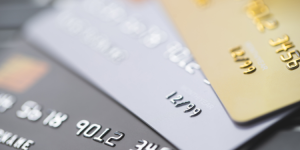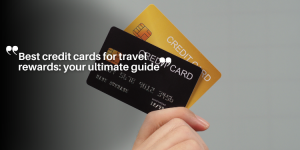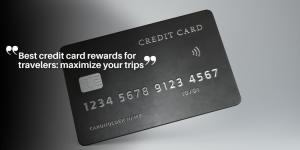Credit card options for beginners: what you need to know
Credit card options for beginners include several types like rewards cards, travel cards, and low-interest cards, which can help newcomers manage their finances wisely and build credit effectively.
When it comes to credit cards, beginners often find themselves lost in a maze of options. But exploring credit card options for beginners doesn’t have to be daunting. With the right information, you can take strides toward mastering your finances with confidence.
Understanding different types of credit cards
When exploring different types of credit cards, it’s important to know what each one offers. Understanding these options can help you choose the right card for your needs.
Types of Credit Cards
There are several types of credit cards available, each tailored to different spending habits and financial goals. Here are some common types:
- Rewards cards: Earn points or cash back on purchases you make.
- Travel cards: Benefit from travel-related perks, like free checked bags or access to airport lounges.
- Low-interest cards: Offer lower interest rates, ideal for carrying balances.
- Student cards: Designed for young adults starting to build credit history.
Choosing the right credit card can make a big difference in your financial journey. For instance, if you travel often, a travel card might be advantageous, providing benefits that enhance your trips. Conversely, if your focus is on building credit, a student card can be a great start.
Evaluating Your Needs
Before selecting a card, evaluate your spending habits. Consider how often you travel or dine out. Are you looking for rewards, or is a low-interest rate more important? Think about your financial goals. This self-assessment will guide you to the best credit card options.
It’s also wise to compare annual fees, interest rates, and rewards programs related to each type of card. Be aware that some cards might have annual fees that offset the benefits you receive. Understanding these factors is crucial in making an informed decision.
By now, you should have a clearer picture of the various options available in the credit card landscape. Make sure to choose wisely based on your individual needs.
Key features to consider when choosing a card
When you’re ready to choose a credit card, it’s vital to know the key features that can affect your decision. Understanding these elements will help you select a card that aligns with your financial needs.
Interest Rates
One of the most important features to consider is the interest rate. This is the cost of borrowing money on your card. Cards with lower interest rates can save you money if you ever carry a balance. Look for cards that offer introductory 0% APR promotions as well.
Fees
Different cards come with various fees. It’s essential to examine:
- Annual fees: Some cards charge a yearly fee, while others do not.
- Foreign transaction fees: If you travel, check if your card charges these fees for purchases made abroad.
- Late payment fees: Be aware of potential fees for missed payments, which can add up quickly.
Knowing these fees can help you avoid surprise costs in the future. Pay close attention to all charges associated with each card you’re considering.
Rewards Programs
Many cards offer rewards for your spending. Consider what type of rewards best suit your lifestyle. Are you more interested in cash back, travel points, or other perks? Each card has different earning opportunities, so it’s wise to choose one that fits your habits.
For example, if you dine out often, a card that offers increased rewards for restaurant purchases might be ideal. On the other hand, if you frequently travel, look for cards that provide travel-related rewards and benefits.
Additionally, review how rewards can be redeemed. Some cards offer flexibility, while others have restrictive policies. Understanding these can maximize the benefits you receive.
Finally, customer service and additional benefits, such as fraud protection or travel insurance, can also influence your choice. Look for cards that offer 24/7 assistance and robust security features.

Tips for applying for your first credit card
Applying for your first credit card can feel overwhelming, but with the right tips, you can navigate the process smoothly. Understanding what lenders look for will increase your chances of approval.
Check Your Credit Score
Before applying, it’s wise to check your credit score. Many first-time applicants may not have an established credit history, which can affect their approval. If you have no score yet, consider options like secured credit cards, which can help you build credit.
Research Different Cards
Take the time to research various credit card options available for beginners. Different cards offer unique features. Look for:
- No annual fees: Many starter cards don’t charge an annual fee.
- Low interest rates: Look for cards with attractive introductory rates.
- Rewards programs: Some cards provide cash back or rewards for purchases.
By exploring the features of each card, you can choose one that fits your financial habits.
Prepare Required Documents
Gather necessary documents before applying. Typically, you’ll need to provide:
- Proof of income: Pay stubs or bank statements work.
- Identification: A government-issued ID helps verify your identity.
- Address verification: Utility bills can serve this purpose.
Having these documents ready will make the application process go more smoothly.
Be Honest in Your Application
When filling out your application, always provide accurate information. Any discrepancies can lead to denial. It’s also essential to avoid applying for multiple cards at once, as this can negatively affect your credit score.
After applying, be patient. It might take a few days to get a decision. If you receive a denial, don’t be discouraged. Investigate the reasons, improve your credit profile, and try again later.
Common mistakes beginners make with credit cards
Many beginners make mistakes when using their first credit cards, leading to unwanted debt and financial stress. Understanding these common mistakes can help you succeed in managing credit effectively.
Overusing Credit Limits
One frequent mistake is using too much of your available credit. Spending close to or over your limit can harm your credit score. Aim to use no more than 30% of your total credit limit at any time. Staying under this threshold helps keep your credit utilization ratio healthy.
Missing Payments
Another common issue is missing payment deadlines. Late payments can result in fees and negatively impact your credit score. Set up reminders or automate payments to avoid this problem. Even small payments on time can make a big difference.
Only Making Minimum Payments
Making only the minimum payment each month is often tempting. However, doing so can lead to accumulating interest and prolonged debt. Always try to pay more than the minimum, if possible. This way, you can reduce the overall cost of borrowing.
Ignoring Credit Card Terms
Not understanding the terms and conditions of your card can lead to surprises later. Review details such as interest rates, fees, and rewards programs. Being informed helps you make better decisions and avoid unpleasant surprises.
Many newbies also forget to check their credit reports regularly. Monitoring your credit can help you spot errors and understand your score better. Use this information to enhance your credit profile. Finally, remember to recognize when it’s time to switch cards or seek better options.
FAQ – Frequently Asked Questions about Credit Card Options for Beginners
What is the best way to use my first credit card?
The best way to use your first credit card is to make small purchases that you can pay off in full each month, helping you build credit without incurring debt.
How can I avoid credit card fees?
To avoid credit card fees, choose a card with no annual fee, pay your bill on time, and stay within your credit limit to avoid over-limit fees.
What happens if I miss a credit card payment?
Missing a credit card payment can result in late fees, increased interest rates, and a negative impact on your credit score.
Can I improve my credit score quickly?
You can improve your credit score quickly by paying down outstanding debts, making timely payments, and keeping your credit utilization low.







